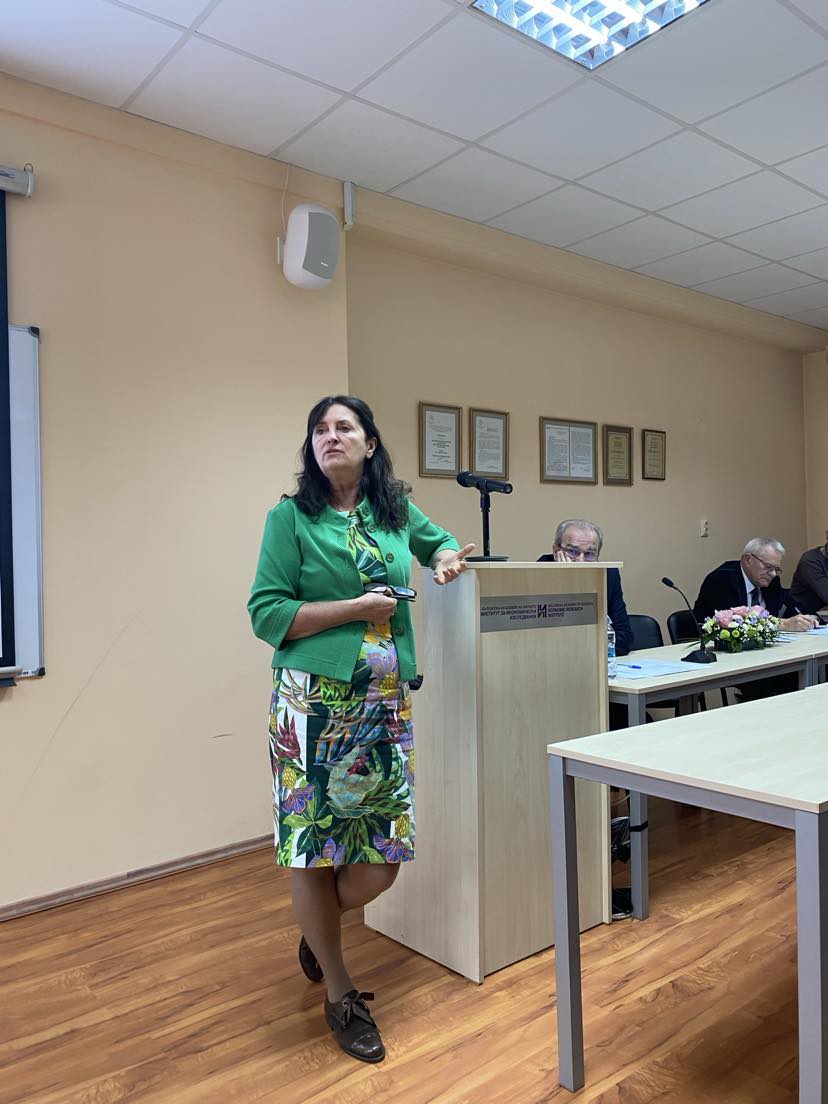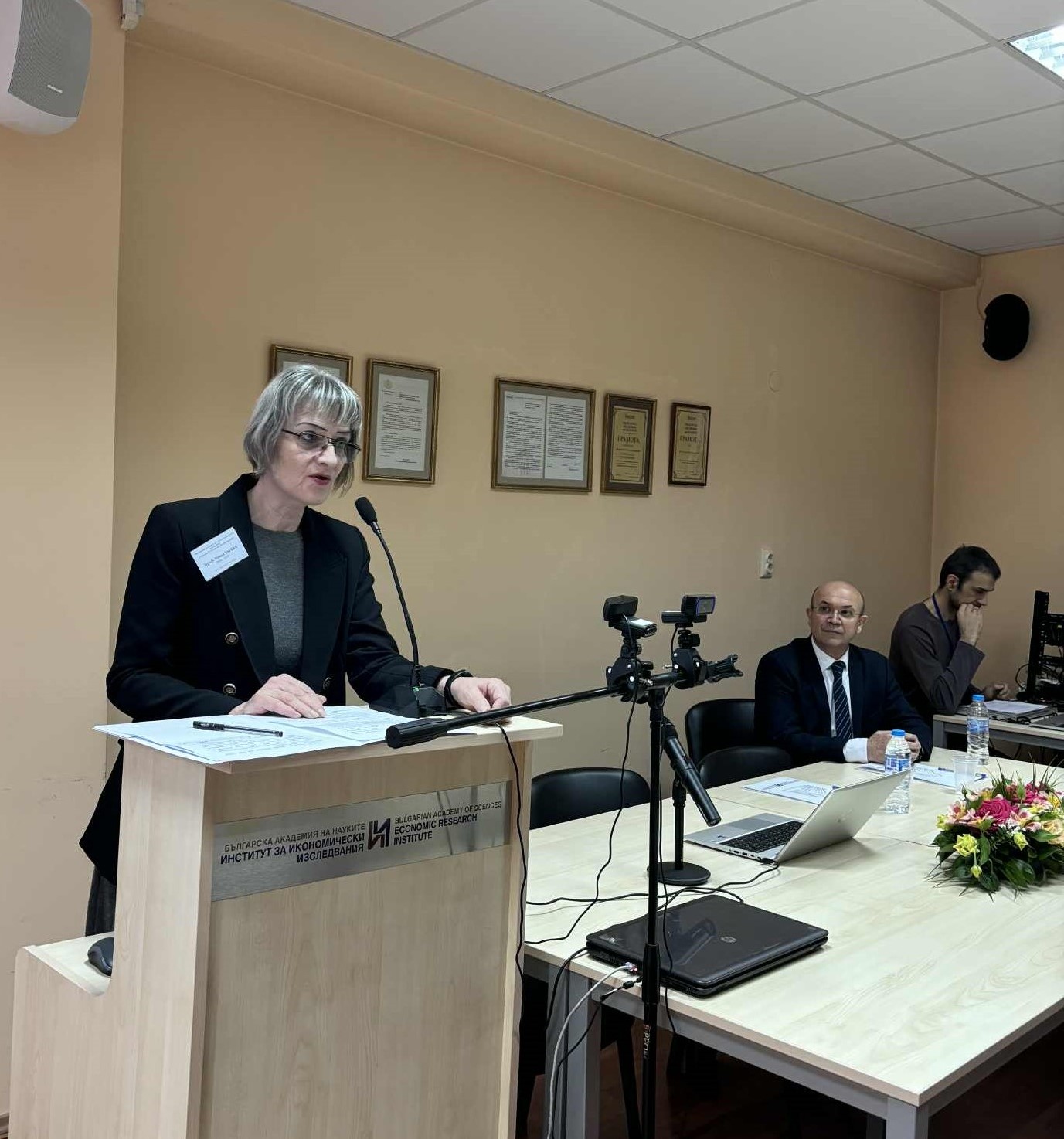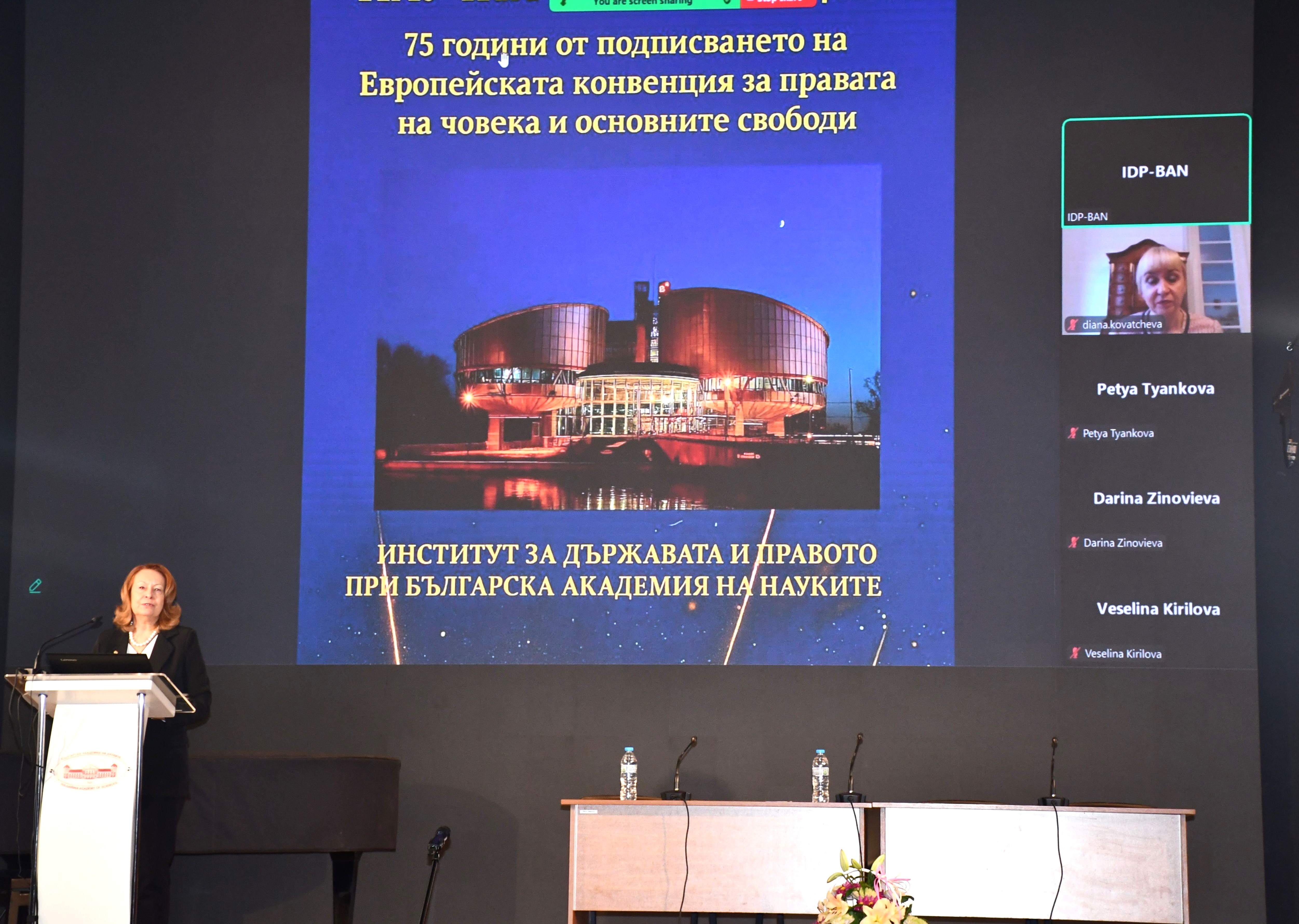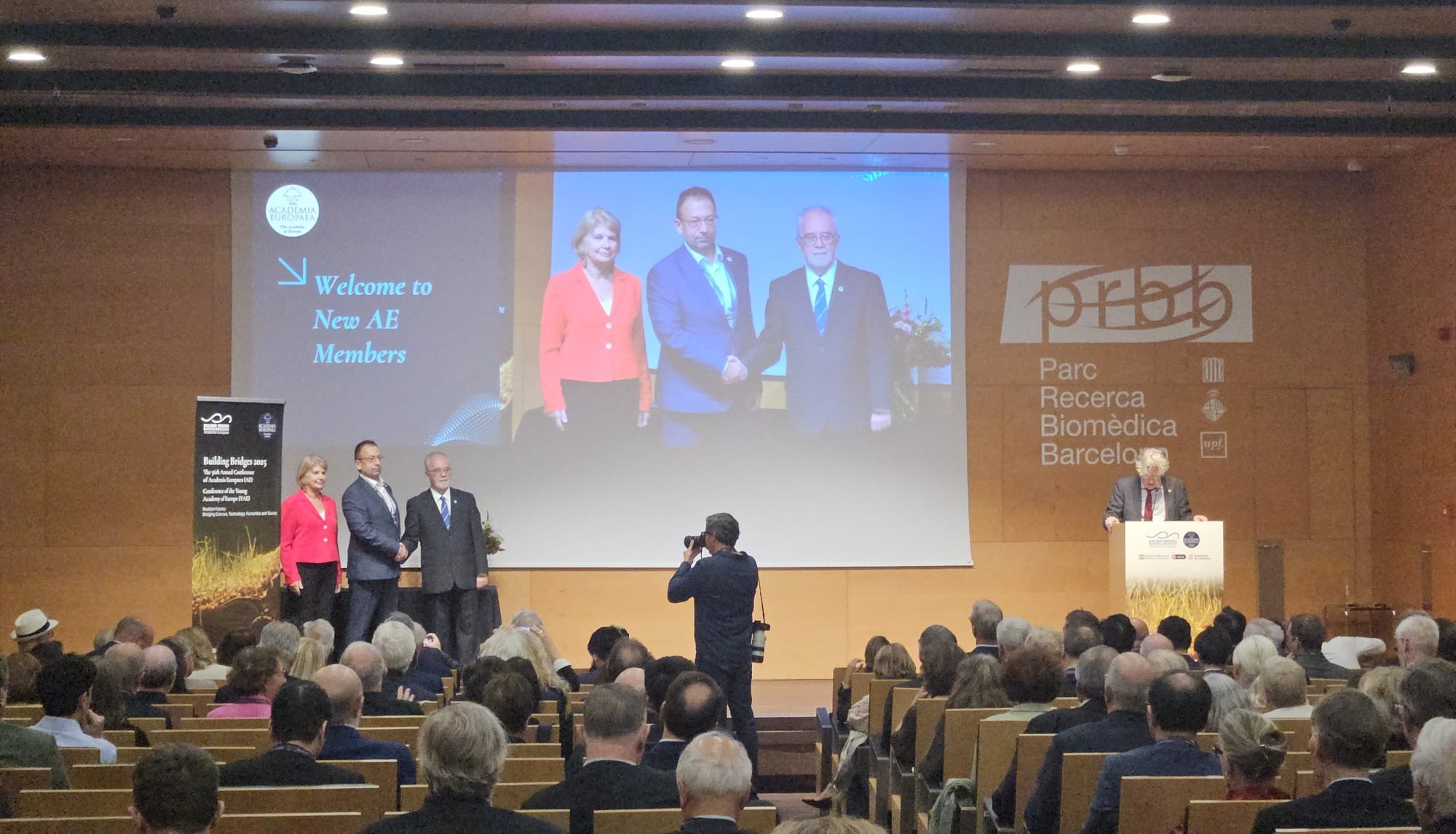More than 40 papers were presented by scientists at a scientific conference at the Economic Research Institute (ERI) of BAS. The forum “Economic Development and Policies: Realities and Prospects” is an annual event, this year dedicated to the topic “National and European Challenges of the Transition to a Green Economy”. It was attended by representatives of the Ministries of Finance and Energy, NGOs and academia in the country.
The conference programme included 4 thematic areas – sustainable development, economic growth and labour market in the transition to a green economy; European perspectives and financing of the green transition; impacts of the transition to a green economy on the regional and sectoral economy and the transition to a green economy and companies.
The plenary report on “Theoretical deficits and political illusions of the green transition” was delivered by Prof. Dr. Daniela Bobeva from ERI at BAS. According to her, the main clash in the economic currents about the green transition is in the theories of growth.
The question about the green transition is not whether but how it should happen – smoothly or by shock, said Prof. Bobeva. Bobeva. She added that resource constraints motivate the green transition, and resource constraints for the green transition demotivate it.
Prof. Bobeva believes that Bulgaria has started the green transition without money. Nevertheless, our country is in a much better condition compared to the European average, especially in protected areas and the reduction of carbon emissions compared to 1990. Bulgaria is the worst performer in the circular economy and waste.
The report of Prof. Dr. Georgi Shopov and Assoc. Prof. Dr. Teodora Peneva from ERI on the social protection of households in the context of energy transition also aroused interest among the participants.
Evaluating the mechanisms for social protection of households in the context of energy transition, the two authors pointed out that the first and most important step towards ensuring measures to protect energy-poor consumers was the existence of a permanent fund or even several sources of financing. To this end, a special fund should be set up for the initial investment of energy-poor households when participating in programmes and schemes.
The report also says that the task is to draw up a synthesised analytical review of the programmes: for financial support for energy renovation of residential buildings, for the provision of compensation in a liberalised electricity market, and for the provision of targeted heating aid during the winter season.
To stimulate the transition of farms to organic farming, urged Assoc. Prof. Dr. Ognyan Boyukliev from ERI at BAS. In his report on the green transition and the food production and trade sectors in Bulgaria, he stressed that in a crisis of rising prices for production with conventional technologies, there were good economic chances for the development of organic farming and organic livestock farming. It was less energy intensive and excluded the use of mineral fertilizers and chemicals, said Assoc. Prof. Boyukliev. The effect of organic farming would also be multifaceted: in addition to better quality produce, it would be low energy, safer and healthier.
In her report on the effects of the green transition on small and medium-sized enterprises, Assoc. Prof. Dr. Milena Angelova from ERI at BAS reported that for 75% of SMEs the requirements for achieving sustainability and the administrative burdens applied are too high, which not only hampered their activities but also put them at a disadvantage compared to their competitors from third countries.
According to her, as financial instruments are complex, require costly consultancy services and the availability of own financial resources, grant financing is the most suitable for SMEs. In order to facilitate their access to public resources, it is necessary to simplify the rules for application, implementation and reporting, to increase the efficiency of the schemes and to reduce the length of procedures.
The transition to sustainability is impossible without SMEs but its success depends on how effectively they are supported, especially against the backdrop of a geopolitically distorted and competitive environment, believes Assoc. Prof. Angelova.






